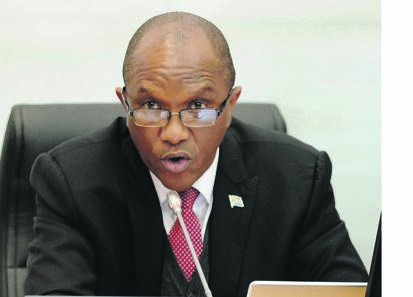
The worsening 2018/19 provincial and national governments’ financial year reports have raised questions about the efficacy of the new powers granted to the Auditor-General’s office.
Despite being given an expanded public sector audit mandate to refer suspected irregularities to chapter 9 institutions equipped with investigative and prosecutorial powers, Auditor-General Kimi Makwetu’s latest audit report still highlighted noncompliance and irregular expenditure of R62.6 billion.
This is an increase from R51 billion announced last year.
In his defence, Makwetu told City Press this week that the new powers were still kicking in, having only come into effect on April 1 this year.
They have also only been implemented in 16 of the 432 audited entities.
“Regardless of this fact the new powers actually had a telling effect in enabling our auditors to unearth the financial loss of R2.81 billion,” said Makwetu.
The main overexpenditure culprits this year are the Passenger Rail Agency of SA and the human settlements department in the Free State.
A central feature of the new amendments to the Auditor-General’s office’s powers was the introduction of the concept of a material irregularity, which is intended to isolate common errors or deficiencies, so that activities that put the public purse at risk of financial loss are identified and pursued.
Material irregularity includes any fraud, theft, breach of a fiduciary duty or non-compliance with or contravention of the law that could result in a material loss to a public sector institution or the public.
“While a normal audit entails going through the books just to get to the conclusion on whether the books are a fair representation of the activities of the entity, the new material irregularity audit entails doing this and then looking deeper into other areas of the environment of the entity so that where there is abuse it can be dealt with,” said Makwetu.
He said the new powers ensured that individuals, especially accounting officers or the boards in the case of state-owned enterprises, could be held personally liable for any irregularities.
This was done through the Auditor-General’s office issuing personal debt certificates that would result in them paying out of their own pockets should they fail to account for the funds.
Makwetu said there were basic legislative instruments that included the Public Finance Management Act and the Municipal Finance Management Act which contained extensive guidelines on what the law required accounting officers and accounting authorities to do.
These “even outline the consequences that must be assigned in the event of financial misconduct”.
“So the question [to accounting officers] is, with all these controls in place, how do you allow misconduct to happen under your watch?
“We are not being vindictive in targeting only accounting officers, we are just following the accountability chain,” said Makwetu.
He urged provincial and national governments to “entrench a culture of accountability, revisit and abide by the pre-emptive provisions prescribed in the Public Finance Management Act to ensure that they deliver good financial governance”.
Makwetu said struggling entities and administrations could take a leaf out of the checks and balances that had been introduced by the Western Cape, which had yet again outperformed other provinces with a 79% clean audit and the lowest irregular, fruitless and wasteful expenditure.
He said should these prescripts be adhered to, the new powers vested in the Auditor-General, enabling him to hold accounting officers and boards personally liable for any losses to the public purse, would be exercised only as a last resort.
“Solutions to the existing culture of non-compliance and irregular expenditure need not be reimagined or developed. Its regulations are already in existence but, for whatever reasons, many people have not activated them,” said Makwetu.
The Western Cape
The Auditor-General said the Western Cape was doing well “because of the role that the leadership in the different portfolios in the province has played when it comes to monitoring and following up on financial management matters”.
“They meet quarterly and also have a programme called the audit progress programme. This is where the premier, MECs, heads of department and chief financial officers, including those in local government, come together and each institution puts on the table its improvement plan and the progress achieved through it. So accountability is not located only within one institution,” said Makwetu.
He praised the checks and balances put in place by the province, saying before any auditing was even done in the Western Cape, the provincial leadership ensured that accounting officers were aware that they would not take lightly any delays in addressing financial issues.
“They [accounting officers] don’t go to that meeting if they have no well-cooked plan to deal with whatever financial deficiency that they may have encountered.
“In essence it’s a culture issue. A culture in any institution is introduced by the leadership of that institution. That’s what makes a difference,” said Makwetu.
The Free State
The Free State was the only province without a single clean audit, with 69% of those departments and entities audited requiring “urgent intervention”.
Makwetu said “for now” his office had left the matter in the hands of the accounting officers in the province.
However, he warned that, should they continue with their lack of compliance, his office would activate its new powers and recoup the losses.
TALK TO US
Do you think its fair to hold accounting officers and boards of public entities and municipalities to account to reduce irregular expenditure?
SMS us on 35697 using the keyword AUDIT and tell us what you think. Please include your name and province. SMSes cost R1.50. By participating, you agree to receive occasional marketing material




 Publications
Publications
 Partners
Partners








